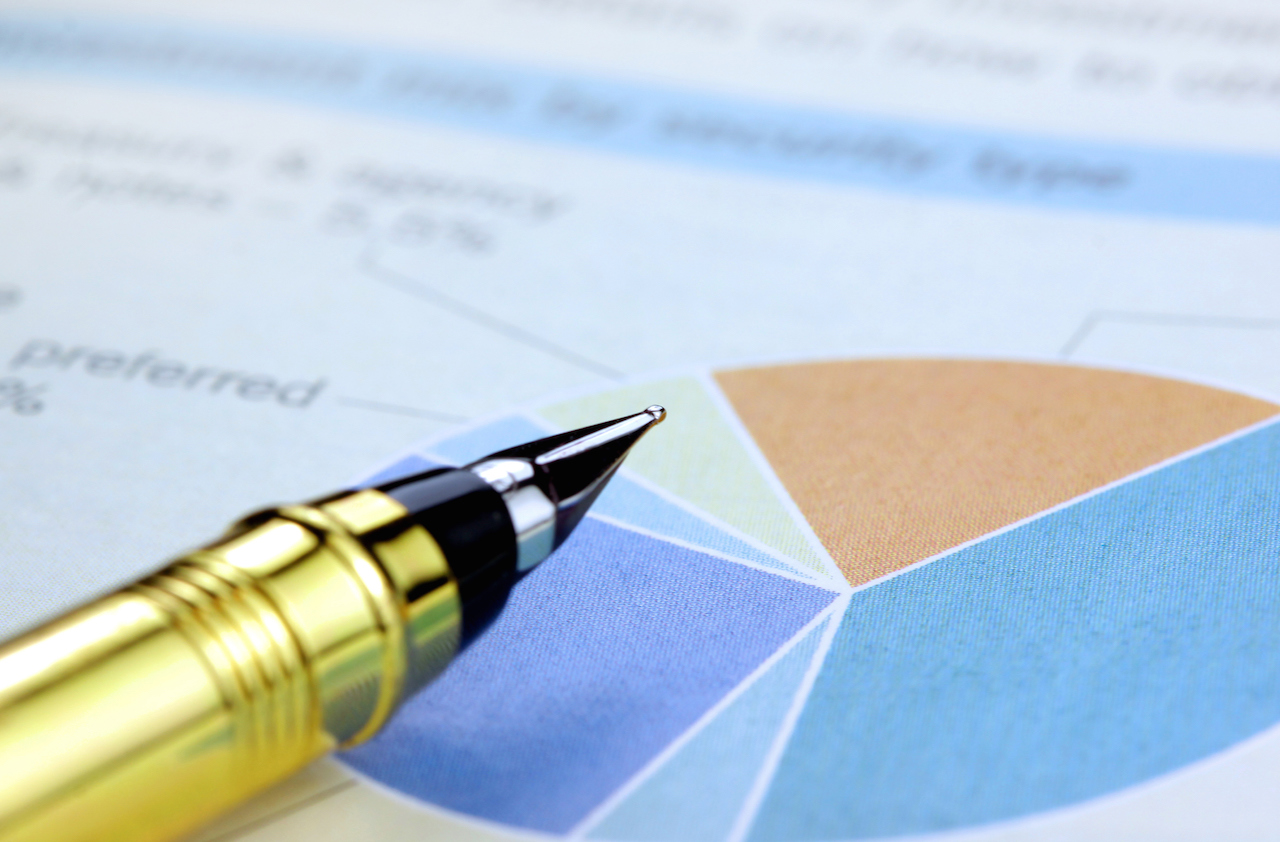The Right Investment Mix
Find out how you should allocate your assets.

Profit and prosper with the best of Kiplinger's advice on investing, taxes, retirement, personal finance and much more. Delivered daily. Enter your email in the box and click Sign Me Up.
You are now subscribed
Your newsletter sign-up was successful
Want to add more newsletters?

Delivered daily
Kiplinger Today
Profit and prosper with the best of Kiplinger's advice on investing, taxes, retirement, personal finance and much more delivered daily. Smart money moves start here.

Sent five days a week
Kiplinger A Step Ahead
Get practical help to make better financial decisions in your everyday life, from spending to savings on top deals.

Delivered daily
Kiplinger Closing Bell
Get today's biggest financial and investing headlines delivered to your inbox every day the U.S. stock market is open.

Sent twice a week
Kiplinger Adviser Intel
Financial pros across the country share best practices and fresh tactics to preserve and grow your wealth.

Delivered weekly
Kiplinger Tax Tips
Trim your federal and state tax bills with practical tax-planning and tax-cutting strategies.

Sent twice a week
Kiplinger Retirement Tips
Your twice-a-week guide to planning and enjoying a financially secure and richly rewarding retirement

Sent bimonthly.
Kiplinger Adviser Angle
Insights for advisers, wealth managers and other financial professionals.

Sent twice a week
Kiplinger Investing Weekly
Your twice-a-week roundup of promising stocks, funds, companies and industries you should consider, ones you should avoid, and why.

Sent weekly for six weeks
Kiplinger Invest for Retirement
Your step-by-step six-part series on how to invest for retirement, from devising a successful strategy to exactly which investments to choose.
Clearly, the more your investments make, the longer your money will last (or the more you can spend each year). And that brings us back to the stock market. You know that history shows that the stock market is the best place to be for the long haul.
Don't suddenly forget that lesson in retirement. The companies in the S&P 500 have posted an annualized return of 11% over the past seven decades, about double the return on five-year government bonds and about three times as much as one-year Treasury bills.
Throughout retirement, says financial planner Deena Katz, "you should have a minimum of 50% in stocks -- but 60% to 75% is better, especially early on."
From just $107.88 $24.99 for Kiplinger Personal Finance
Become a smarter, better informed investor. Subscribe from just $107.88 $24.99, plus get up to 4 Special Issues

Sign up for Kiplinger’s Free Newsletters
Profit and prosper with the best of expert advice on investing, taxes, retirement, personal finance and more - straight to your e-mail.
Profit and prosper with the best of expert advice - straight to your e-mail.
Exhaustive research by William Bengen, a financial planner in El Cajon, Cal., suggests that retirees should have between 50% and 75% of their retirement money in a diversified portfolio of large-company stocks or mutual funds. Based on market behavior over the past 70 years, that mix produced the best overall returns. Anyone holding less than 50% or more than 75% in stocks is being "controlled either by fear or greed," he says.
Once you begin tapping the nest egg, Bengen says, you can decrease your initial stock-allocation percentage by one percentage point per year without seriously affecting your ability to withdraw funds over 30 years. If you had 75% in stocks at age 65, then by age 80 you'd be down to 60% in stocks.
Bengen's formula means that the percentage of a portfolio that a conservative retiree should have invested in stocks is 115 minus his or her age. That would mean 50% if you were age 65, for example, falling to 35% 15 years later, when you hit 80. For an aggressive investor, the percentage should be 140 minus age -- or 75% at age 65 and 60% at 80.
Based on historical market performance, Bengen's research shows that a 65-year-old invested 50% in stocks can withdraw between 4% and 5% of a tax-deferred portfolio (slightly less for a taxable portfolio) in the first year of retirement (and the same amount increased by inflation in each of the succeeding 30 years) and not run out of money even during market downturns. This means that if you have a $700,000 portfolio, at 4% you can withdraw $28,000 in the first year. Applying a 3% inflation rate, in year two you could take out $28,840, in year three $29,705, and so on throughout the 30 years.
When setting your own allocation, keep in mind that at least part of your money at 65 will be invested for ten years or more. That makes you a long-term investor.
But what if having 50% or more of your portfolio in stocks still gives you the jitters? Then just say no. Any allocation has to take your risk tolerance into account. You can invest more conservatively -- but you may be cutting short the life of your assets.

How Much Do You Need?
Which Money to Spend First?

Profit and prosper with the best of Kiplinger's advice on investing, taxes, retirement, personal finance and much more. Delivered daily. Enter your email in the box and click Sign Me Up.
-
 Ask the Tax Editor: Federal Income Tax Deductions
Ask the Tax Editor: Federal Income Tax DeductionsAsk the Editor In this week's Ask the Editor Q&A, Joy Taylor answers questions on federal income tax deductions
-
 States With No-Fault Car Insurance Laws (and How No-Fault Car Insurance Works)
States With No-Fault Car Insurance Laws (and How No-Fault Car Insurance Works)A breakdown of the confusing rules around no-fault car insurance in every state where it exists.
-
 7 Frugal Habits to Keep Even When You're Rich
7 Frugal Habits to Keep Even When You're RichSome frugal habits are worth it, no matter what tax bracket you're in.
-
 Stocks Sink With Alphabet, Bitcoin: Stock Market Today
Stocks Sink With Alphabet, Bitcoin: Stock Market TodayA dismal round of jobs data did little to lift sentiment on Thursday.
-
 Dow Leads in Mixed Session on Amgen Earnings: Stock Market Today
Dow Leads in Mixed Session on Amgen Earnings: Stock Market TodayThe rest of Wall Street struggled as Advanced Micro Devices earnings caused a chip-stock sell-off.
-
 Nasdaq Slides 1.4% on Big Tech Questions: Stock Market Today
Nasdaq Slides 1.4% on Big Tech Questions: Stock Market TodayPalantir Technologies proves at least one publicly traded company can spend a lot of money on AI and make a lot of money on AI.
-
 Fed Vibes Lift Stocks, Dow Up 515 Points: Stock Market Today
Fed Vibes Lift Stocks, Dow Up 515 Points: Stock Market TodayIncoming economic data, including the January jobs report, has been delayed again by another federal government shutdown.
-
 Stocks Close Down as Gold, Silver Spiral: Stock Market Today
Stocks Close Down as Gold, Silver Spiral: Stock Market TodayA "long-overdue correction" temporarily halted a massive rally in gold and silver, while the Dow took a hit from negative reactions to blue-chip earnings.
-
 The U.S. Economy Will Gain Steam This Year
The U.S. Economy Will Gain Steam This YearThe Kiplinger Letter The Letter editors review the projected pace of the economy for 2026. Bigger tax refunds and resilient consumers will keep the economy humming in 2026.
-
 Nasdaq Drops 172 Points on MSFT AI Spend: Stock Market Today
Nasdaq Drops 172 Points on MSFT AI Spend: Stock Market TodayMicrosoft, Meta Platforms and a mid-cap energy stock have a lot to say about the state of the AI revolution today.
-
 S&P 500 Tops 7,000, Fed Pauses Rate Cuts: Stock Market Today
S&P 500 Tops 7,000, Fed Pauses Rate Cuts: Stock Market TodayInvestors, traders and speculators will probably have to wait until after Jerome Powell steps down for the next Fed rate cut.